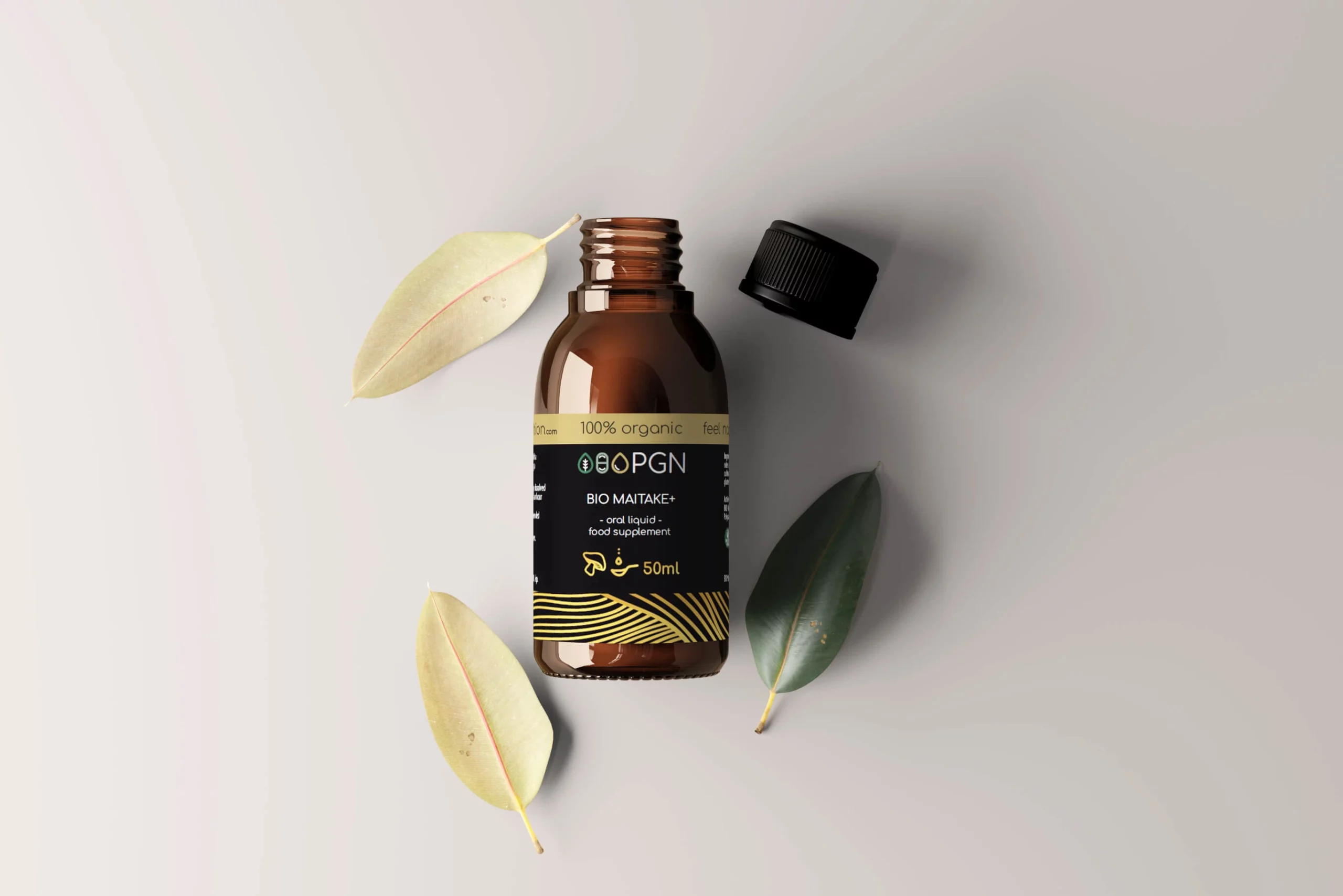The origin of Maitake (Hen of the woods)
Grifola frondosa, an edible fungus with the common name maitake or hen of the woods, is endemic to China, northeastern Japan, and North America. Although maitake is currently grown indoors, it can be found in the wild at the bases of oak, maple, and elm trees. Hen of the woods is a gourmet mushroom that is also well-known for its therapeutic properties. In fact, the Japanese word “Maitake” literally translates to “Dancing Mushroom,” expressing delight upon discovering it.
The wonderful qualities of Maitake
There are numerous theories as to how it acquired its name, “the Dancing Mushroom”. One says that because hen of the woods was so rare and expensive in ancient Japan, people would dance with excitement when they discovered it. Another interpretation contends that the reason for this joyful dance was the delicious and healthy qualities of the special medicinal mushroom. Another theory is that the overlapping fruiting bodies of clustered maitake resemble butterflies doing a frenzied dance.
Whatever the theory behind the name, one thing is for sure: hen of the woods has extremely beneficial health effects. The first known uses of maitake are recorded in the Chinese Materia Medica (206-220 BC). These included calming the mind and nerves, treating haemorrhoids and stomach problems, and increasing the function of the spleen, thereby strengthening the immune system. In Japan, hen of the woods has a unique place in the world of medicinal mushrooms. For centuries, the Japanese have utilized it as an adaptogen—a nutrient that aids in balancing the body’s numerous systems and functions. It is abundant in minerals (such as potassium, calcium, and magnesium), vitamins (B2, B3, and vitamin D), amino acids, fibre, as well as polysaccharides.

Potential therapeutic properties of Maitake

Powerful fighter against cancer
The polysaccharides beta 1,6 and beta 1,3 glucans, which are complex carbohydrates with a high sugar content, are the major components of hen of the woods. Beta-glucan activates white blood cells called macrophages, which can kill the bacteria that cause disease and cancer. Therefore, maitake’s primary role is to improve the immune system and previous studies have indicated that these substances have potent anti-tumour properties.
Use of Maitake polysaccharide extracts, or combinations of polysaccharide extracts and fruiting bodies, has shown impressive results. One study using 40-100mg MD-fraction and 4-6g powdered fruiting body reported cancer regression or significant symptom improvement in 58% of patients with liver cancer, 68% of patients with breast cancer, and 62% of patients with lung cancer. Improvements in immune-competent cell activities have also been documented when taken in conjunction with chemotherapy.
Anti-diabetic effect
Several studies show that using purified maitake polysaccharides significantly lowers blood sugar levels in people with type II diabetes. Additionally, it has been observed that adding crude Maitake powder to the diet of diabetic animal models produces favourable results. The extract of hen of the woods can also control insulin, blood pressure, liver fat metabolism, triglyceride, and cholesterol levels. Because of its effects on fat metabolism, it may also help with weight loss.
Potential medicine for women suffering from PCOS
In many cases, insulin resistance plays a factor in Polycystic Ovary Syndrome (PCOS), and polysaccharide extracts of hen of the woods have shown potential as treatments for this condition.
Ovulation was noted in 20 of the 26 women who received a Maitake polysaccharide extract in a Japanese study, while 6 of the 8 women who failed to ovulate after receiving clomiphene citrate treatment did so after receiving the polysaccharide extract. Additionally, all three of the women who stated an interest in getting pregnant were successful in doing so.
Pure Gold Nutrition BIO MAITAKE mushroom extract
Would you like to experience the health benefits of hen of the woods? Try using PGN BIO MAITAKE extract! Our mushroom extract, produced using a unique manufacturing technology, contains 2g of dried mushrooms per daily dose (5 ml), which is the equivalent of 10g of fresh mushrooms. The indigestible part of the mushroom is removed during the manufacturing process, which allows the concentrated active ingredients to be better absorbed by the body.

Pure Gold Nutrition
Organic materials. 100% natural solutions. Zero compromises.

